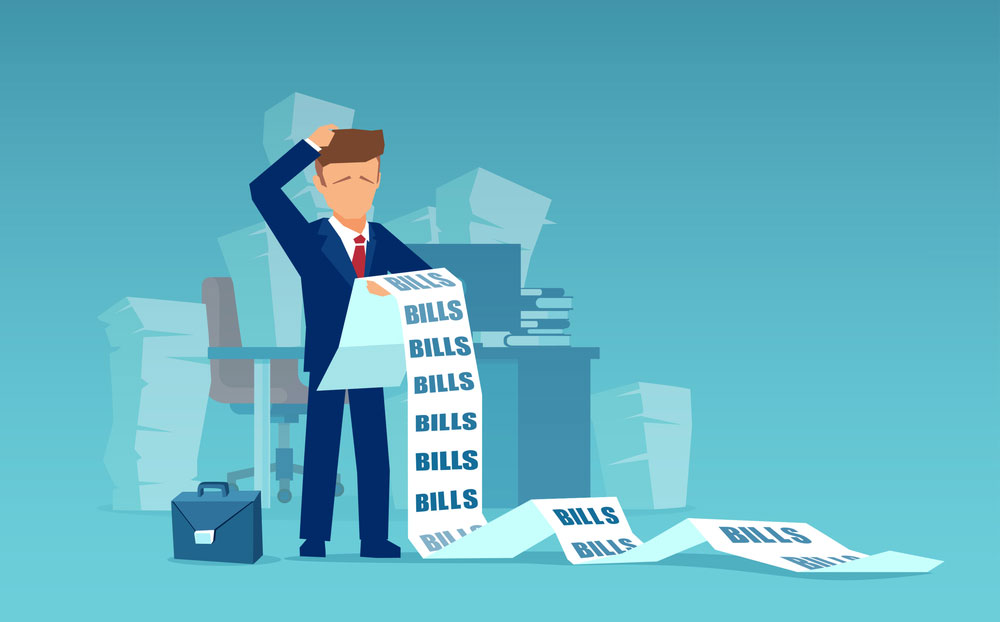
Small Business Reorganization Act of 2019 (SBRA)
The Small Business Reorganization Act of 2019 (SBRA) was signed into law on August 23, 2019. Although the name of the act references business, this new type of Bankruptcy reorganization can also be used by a regular individual person. This new bankruptcy option is commonly referred to as Sub V.
Can you or your business be a debtor under the new Sub V law?
If you are engaged in a commercial or business activity and that business entity has debts of no more than $2,725,625 (the CARES Act has increased the debt threshold of $7.5 million but will expire and return to $2,725,625 after one year), you could quality to be a debtor under the new Sub V bankruptcy. The exception is that a debtor whose primary business activity is the ownership of a single piece of reals estate does not qualify to file for bankruptcy under this Sub V chapter. Contact Miceli Law, P.A. for help you navigating the process and determine if you or our business qualify to be a debtor under this new chapter.
What are the benefits of a Sub V bankruptcy?
The Sub V bankruptcy has tools and benefits that are not available in chapter 7, chapter 13 or chapter 11 bankruptcy.
The Sub V is meant to be a streamline, fast, cheaper alternative to a traditional chapter 11 bankruptcy. In this article, I will explain the 6 new and biggest benefits of filing a Sub V bankruptcy.
Remember, that you should always speak to an attorney before deicing what bankruptcy chapter works best for you and your unique circumstances. Miceli Law serves the Ft. Lauderdale and Miami area and we are ready and happy to speak to you about your financial concerns. This article is meant as a quick guide to the benefits of the newly enacted Sub V bankruptcy.
1. One big difference between a traditional chapter 11 bankruptcy and the Sub V, is that in most instances there is no unsecured creditors committee. This is one way in which the bankruptcy process is made simpler and faster in a Sub V.
2. In every Sub V case, there will be a trustee appointed. The goal of the trustee will be to facility a plan between the debtor and creditors. The trustee’s duties are to monitor and facilitate a consensual plan with creditors. Unlike a chapter 11, The trustee does not operate the business for the debtor. The debtor will continue to operate the business day to day and retain control of the business.
3. In a Sub V bankruptcy, the debtor retains the exclusive right to propose a plan of reorganization. The Sub V debtor does not have to file or seek approval of a disclosure statement. This is a plus because it eliminates costs and speeds up the confirmation process. In this way a Sub V debtor can get back to business as usual much faster than a debtor in a traditional chapter 11 business bankruptcy.
4. Yet another very important and beneficial aspect of the Sub V bankruptcy is that the debtor in a Sub V does not Pay United States Trustee fees. United States Trustee fees in a traditional business bankruptcy are determined by the amount of payments the debtor makes in the operating of the business. The higher the business operating costs and payments, the higher the United States trustee fee. Needless to say, these fees can add up quickly.
5. Perhaps the most beneficial aspect of a Sub V bankruptcy is that it allows for a modification of residential mortgages when that mortgage was taken out and loan proceeds were primarily used in connection with a business. This means that a lien on a primary residence may be potentially “stripped down” to its value when the proceeds from that mortgage was primarily used for a business purpose. This relief is not available in chapter 13 or chapter 11 bankruptcies. In a chapter 13 and chapter 11 bankruptcy a debtor cannot modify “strip down” a line on a residential property that is the debtor’s homestead. A recent New York Bankruptcy court discusses this new process in a case called In re Ventura, 2020 WL 1867898 (Bankr. E.D.N.Y.April 10, 2020).
6. The last benefit relates to an individual debtor in a Sub V bankruptcy. If the Sub V plan is consensual, meaning agreed upon by the creditors and the debtor, then the Debtor will obtain a discharge of his/her debts immediately upon plan confirmation.
This is tremendously beneficial to an individual in a Sub V because traditionally an individual debtor in a chapter 13 or in chapter 11 will not receive a discharge of his/her debts until the plan payments are completed. On average payments under a plan can last between 3- 5 years. Meaning that the debtor would have to wait years to get a discharge. In many cases the debtors in a Sub V will be able to receive a discharge and move on with their lives at the time the plan is confirmed.
Contact a Miami Bankruptcy Attorney
If you are currently considering filing a Sub Chapter V bankruptcy or whether you are undecided what Chapter is right for you, we can help. Contact an experienced Miami Bankruptcy Attorney at (305) 515-5928 for more information.
